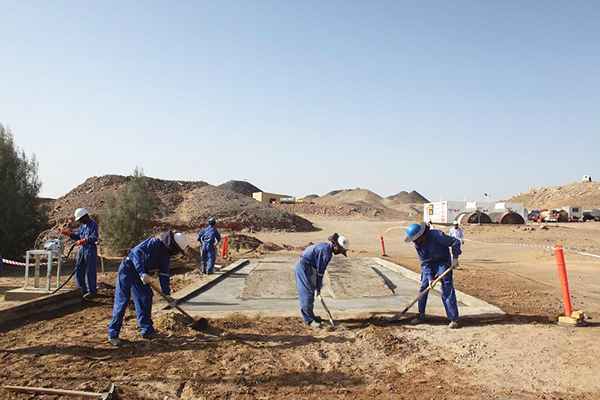
Courtesy of Tethyan
Judge Knowles rules corruption allegations cannot be used to challenge arbitration ruling, as Supreme Court of Pakistan did not base its decision on them
The London High Court this week barred Pakistan from challenging an International Chamber of Commerce partial award in favor of Australian mining firm Tethyan Copper Company (TCC) by pleading corruption allegations in the Reko Diq case, as the Supreme Court of Pakistan had not based its decision to declare the deal void on such claims.
The judgment authored by Justice Robin Knowles defeats the key argument that was being forwarded by Pakistan’s legal team to get the case dismissed. It stated that Balochistan had not opted to raise the issue of corruption during international arbitration and could not, now, include it during the appeal before the London High Court.
According to the claim filed by the Balochistan government against TCC in the U.K. High Court, the mining conglomerate had paid significant bribes to Pakistani government officials before and after the inking of the joint venture agreement to secure a mining deal in exchange for various “illegitimate benefits.” It argued that because the initial deal had been declared void due to this corruption, the ICC had no jurisdiction over the Reko Diq case. In his ruling, Judge Knowles maintained that Balochistan had forfeited its right to mount corruption allegations, as British arbitration law barred parties from raising issues before court that had not been raised during arbitration.
The judgment also noted that just referring to the Supreme Court of Pakistan declaring the initial agreement void was insufficient to prove that corruption allegations had been placed before the tribunal. Judge Knowles wrote that the Supreme Court of Pakistan had made no reference to the allegations of corruption in its decision while declaring the agreement as invalid.
“Descriptions of or references to corruption are insufficient: the question with which the corruption allegation is concerned is whether the Supreme Court of Pakistan found that the [joint venture agreement] and related agreements were void due to the existence of corruption,” read the judgment, adding that Judge Knowles did not believe it had.
The judge noted that Balochistan had repeatedly failed to raise the corruption allegations before the international tribunal, and had instead chosen a different jurisdiction to launch the case. “If the province has evidence relating to corruption that was not before the ICC tribunal … then it is for the province to seek to address those matters with the arbitral tribunal; it does not make it legitimate for the province to raise them with the court as a challenge to the jurisdiction of the arbitral tribunal,” read the ruling.
Reko Diq case
Former chief justice Iftikhar Muhammad Chaudhry had ruled against TTC in the Reko Diq case in 2013, setting off the series of events that led to the International Center for Settlement of Investment Disputes decision after nearly seven years of litigation.
According to TTC, the Reko Diq Mining Project was to build and operate a copper-gold open-pit mine at a cost of about $3.3 billion. The company claims its 1998 agreement with the Balochistan government entitled it to the mining lease, subject to routine government requirements. The project stalled in November 2011 after the application was rejected, with Pakistani officials claiming the lease was terminated because it was secured in a non-transparent manner.
By then, the company had already invested $220 million in Reko Diq and sought help from the World Bank arbitration tribunal in 2012, which ruled against Pakistan in 2017, rejecting an earlier decision by the Supreme Court. The tribunal used a formula for calculating damages for the cancelled lease based on assumed profits TTC might have earned from the mine over 56 years. In July 2019, the tribunal slapped a $5.97 billion award against Pakistan for revoking the mining lease.
In September, Pakistan won a stay on the enforcement of the award and the ICSID said the stay would continue on a conditional basis, directing Islamabad to provide an “unconditional and irrevocable” bank guarantee or the letter of credit for 25 percent of the award, plus accrued interest as of the date of the decision. Pakistan, however, did not deposit this amount, resulting in TTC seeking payment through the BVI High Court.
Information about the attachment proceedings and the earlier order of the BVI High Court was communicated to Pakistan on Dec. 23, 2020, with the AGP’s Office vowing to vigorously pursue proceedings and protect national assets.
